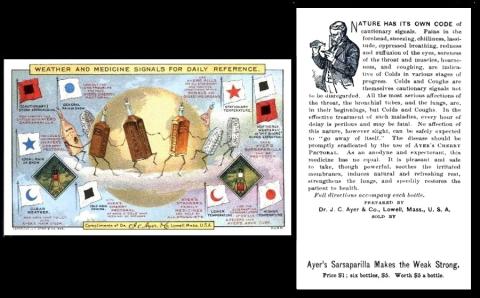
Temperature may not seem to be so important on the sea, but weather certainly is, and never more so in the days of the sail driven ships, when no wind meant no movement, and too much wind would blow them far off course. And, to this day, wind speed is measured in knots, just like the speed of those ships.
Hurricanes and cyclones cause most of the record winds at sea, and the highest wind ever recorded was in the Eastern Pacific Ocean during Hurricane Patricia, in October 2015. These winds frequently hit 215 mph, or, for the land lubbers 187 knots.
The fastest ever wind speed, on land, in the world was just faster than this, at almost 220 knots, or almost 253 mph, - this was recorded on April the 10th, 1996, during a cyclone, at an unmanned weather station on Barrow Island, Australia.
And as for the United Kingdom, the highest gust happened at the top of Cairngorm on March the 20th, 1986, and that was 150.3 knots (or 173mph).
This card is not rare, but it is a treasure, and it has many things that make it collectable, firstly the weather flags, and then there are the bottles, dancing in the middle, and then it appeals to collectors of medical memorabilia, because they have cunningly and cleverly linked each flag to a common bodily condition, for example "Local Rain or Snow" links to "for colds and coughs use Ayer`s Cherry Pectoral", and "Stationary Temperature" says "Use Ayers Pills for all stationary and inactive conditions of the bowels and digestive organs". You can just imagine the fun that children would have had with this, but also it must have definitely helped to teach them the flags.
Now Dr. James Cook Ayer & Co. was based in Massachusetts, but he was born in Connecticut, in May 1818. The move occurred after his mother remarried, and sent James and his brother to an uncle. James went on to study medicine at the University of Pennsylvania, but never became a doctor; his great love was the chemistry, the combining of the substances and the making of the medicines. For some reason, perhaps his advertising, including cards and other giveaways, he soon made a name for himself, and was able to open a factory in Lowell.
In fact, in 1874, he stood for Congress, but he was defeated, and he never again attempted to become involved in politics.
